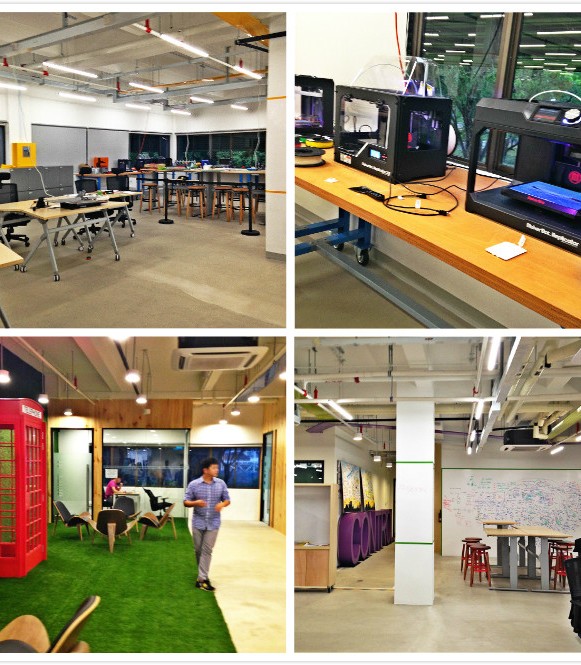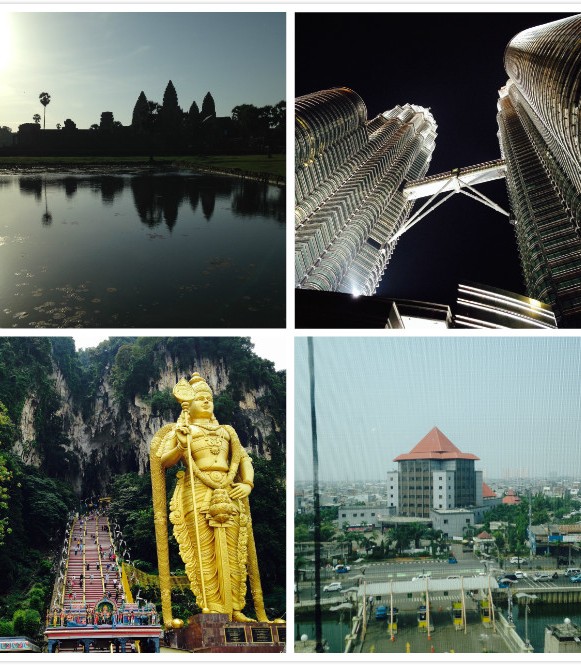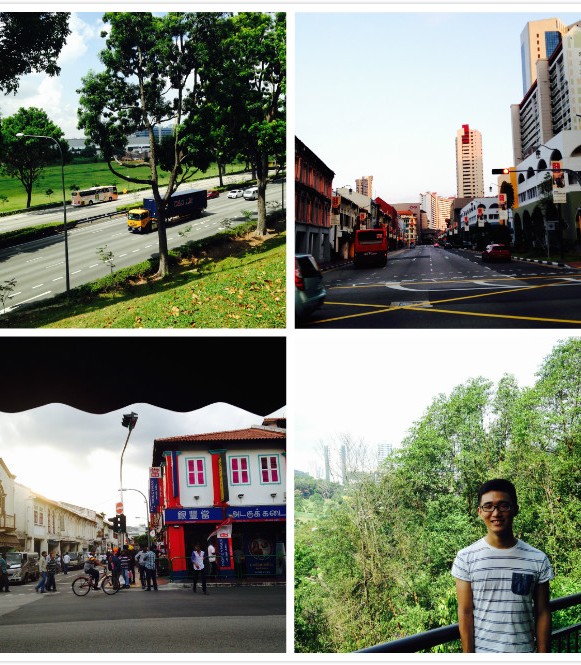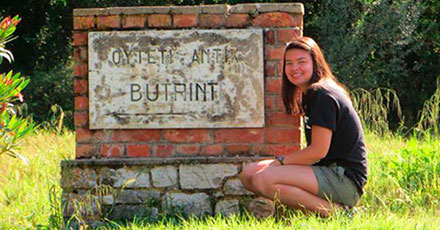The following post is by Boris Shou ’18, a potential Computer Science and Mathematics major. Boris spent his AMS grant on an entrepreneurship program with a startup in Singapore.
This summer, I participated in Sage Corps, a U.S.-based entrepreneurship program that sends students overseas to work for startups. Of the several locations offered by the program, I was matched with a startup in Singapore and used my AMS grant to pay for the program tuition and living. I spent eight weeks there, working mainly on software development and maintenance, and learned a lot about the field.
On the very first day of the program, I was convinced that Singapore was the right place to learn about entrepreneurship. Traveling through the bustling streets and walkways, I was impressed by the high level of development in this city-state: modern architecture, cleanliness, cultural diversity, and perfect city planning. Singapore has achieved remarkable economic growth within the past three decades, and to keep the steam, the government has been investing heavily in innovation and providing adequate grants and support to entrepreneurs. Also, Singapore is of great importance to the entrepreneurs. While the Singapore market itself is small, the country has a long history of contact with the West, and enjoys easy access to all parts of Asia, where half of the world population lives.
I learned a great deal from my startup. I chose to be a programmer when I applied to Sage Corps. Having learned Django briefly, a Python web framework, I was able to dabble in most of its features during my internship and write significant programs for the products of the startup. I spent the first two weeks studying the rigorous setup of software development environment, and the next three weeks learning and writing functional tests, which use code to ensure that all necessary features are covered in an application. Having become much more familiar with Django, I spent the last three weeks building a small web application. Beside the technology part, I helped my startup with accounting and market research to get a sense of the other aspects of a startup.
Contrary to what I thought about startups before – creative but disorganized – I realized they are in fact well laid-out and that entrepreneurship is a science. The members in my startup assumed different roles, interacted with each other, and followed the Lean Startup methodology. Throughout the program, I also thought about whether startups really benefit the public or just cater to insatiable and unnecessary desires. I still do not have an answer. Based on the pitches I heard and places visited, I think entrepreneurship is good in the medical and educational fields. On other occasions, I find it neither bad nor good in the long run, or is controversial. Cheaper alternatives from startups could increase welfare by improving market efficiency, but at the same time, they pose threat to the existing traditional businesses.
Besides, I found the program relevant to my personal goals. After the program, I am determined to major in computer science at Colgate and pursue a career in IT in the future. I am not sure about entrepreneurship, but I find it exciting and I hope to do it someday.
I also had a great time in Singapore. Over the course of eight weeks, I became good friends with the twelve other undergraduates, who all had different backgrounds and came from all over the U.S. Together, we toured the manmade wonders in Singapore, including Gardens by the Bay, Night Safari, and Sentosa. We were impressed by the local food in hawker centers all around Singapore. Chinese, Indian, and Western restaurants were all so amazing. We went to world-class bars and clubs along Club Street, Clarke Quay, and between skyscrapers. We even traveled abroad during some of the weekends to nearby countries. Each city had a different vibe. The Angkor Wat in Siem Reap, Cambodia appeared magnificent yet silent, with centuries of history being calmly displayed. Kuala Lumpur, Malaysia showed the stunning Islamic culture of the country that I had never known before. Jakarta, Indonesia was full of potential with its large population, even though it looked old on the outside. Every time we returned to Singapore, we saw the “Welcome home” sign and were excited by the enchantment Southeast Asia offered.
Speaking of Singapore itself, I did find its culture unique and different, though I am from China and Singapore has its majority being ethnically Chinese. I talked with many local Singaporeans as well as Chinese, who arrived on government scholarships and later settled there. It was particularly interesting to learn about the strict laws in Singapore. These laws ensure the incredible orderliness of the country, but they annoyed me at times. Singapore is a unique model in the world, for it runs well without true democracy. The rulers may control the tiny country easily, but they have to be extremely cautious in international politics to avoid getting into wars with other countries. People are generally conservative, especially on political issues like LGBTQ. All of the unique aspects of Singapore that one does not find elsewhere are more or less the result of the country’s physical constraints – size and geographic location, which fascinate me.
In the end, it was a bit unfortunate that I had to leave right before the nation’s 50th birthday. Nevertheless, I was content and grateful for what I had experienced in eight weeks’ time. Singapore has amazed me much more than I expected, and with what I learned in my internship, it has been the best summer I have ever had.








